Fleurs du Mal Magazine


Or see the index
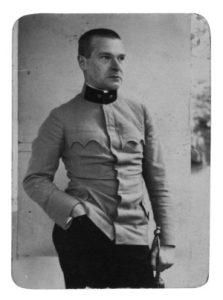
Abendland
Else Lasker-Schüler in Verehrung
1.
Mond, als träte ein Totes
Aus blauer Höhle,
Und es fallen der Blüten
Viele über den Felsenpfad.
Silbern weint ein Krankes
Am Abendweiher,
Auf schwarzem Kahn
Hinüberstarben Liebende.
Oder es läuten die Schritte
Elis’ durch den Hain
Den hyazinthenen
Wieder verhallend unter Eichen.
O des Knaben Gestalt
Geformt aus kristallenen Tränen,
Nächtigen Schatten.
Zackige Blitze erhellen die Schläfe
Die immerkühle,
Wenn am grünenden Hügel
Frühlingsgewitter ertönt.
2.
So leise sind die grünen Wälder
Unsrer Heimat,
Die kristallne Woge
Hinsterbend an verfallner Mauer
Und wir haben im Schlaf geweint;
Wandern mit zögernden Schritten
An der dornigen Hecke hin
Singende im Abendsommer
In heiliger Ruh
Des fern verstrahlenden Weinbergs;
Schatten nun im kühlen Schoß
Der Nacht, trauernde Adler.
So leise schließt ein mondener Strahl
Die purpurnen Male der Schwermut.
3.
Ihr großen Städte
steinern aufgebaut
in der Ebene!
So sprachlos folgt
der Heimatlose
mit dunkler Stirne dem Wind,
kahlen Bäumen am Hügel.
Ihr weithin dämmernden Ströme!
Gewaltig ängstet
schaurige Abendröte
im Sturmgewölk.
Ihr sterbenden Völker!
Bleiche Woge
zerschellend am Strande der Nacht,
fallende Sterne.
Georg Trakl
(1887 – 1914)
Abendland
• fleursdumal.nl magazine
More in: Archive S-T, Archive S-T, Expressionism, Expressionisme, Lasker-Schüler, Else, Trakl, Georg, Trakl, Georg

Nähe des Todes
O der Abend, der in die finsteren Dörfer der Kindheit geht.
Der Weiher unter den Weiden
Füllt sich mit den verpesteten Seufzern der Schwermut.
O der Wald, der leise die braunen Augen senkt,
Da aus des Einsamen knöchernen Händen
Der Purpur seiner verzückten Tage hinsinkt.
O die Nähe des Todes. Laß uns beten.
In dieser Nacht lösen auf lauen Kissen
Vergilbt von Weihrauch sich der Liebenden schmächtige Glieder.
Georg Trakl
(1887 – 1914)
Nähe des Todes
• fleursdumal.nl magazine
More in: - Archive Tombeau de la jeunesse, Archive S-T, Archive S-T, Expressionism, Trakl, Georg, Trakl, Georg

In Venedig
Stille in nächtigem Zimmer.
Silbern flackert der Leuchter
Vor dem singenden Odem
Des Einsamen;
Zaubrisches Rosengewölk.
Schwärzlicher Fliegenschwarm
Verdunkelt den steinernen Raum
Und es starrt von der Qual
Des goldenen Tags das Haupt
Des Heimatlosen.
Reglos nachtet das Meer.
Stern und schwärzliche Fahrt
Entschwand am Kanal.
Kind, dein kränkliches Lächeln
Folgte mir leise im Schlaf.
Georg Trakl
(1887 – 1914)
In Venedig
• fleursdumal.nl magazine
More in: *War Poetry Archive, - Archive Tombeau de la jeunesse, Archive S-T, Archive S-T, Expressionism, Expressionisme, Trakl, Georg, Trakl, Georg
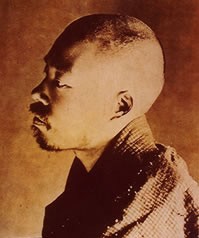
Buddha-death
Buddha-death:
the moonflower’s face,
the snake gourd’s fart
Masaoka Shiki
(1867-1902)
Buddha-death
•fleursdumal.nl magazine
More in: #Editors Choice Archiv, Archive S-T, Archive S-T, Shiki, Masaoka

Haiku
After killing
a spider, how lonely I feel
in the cold of night!
Masaoka Shiki
(1867-1902)
Haiku
•fleursdumal.nl magazine
More in: #Editors Choice Archiv, Archive S-T, Archive S-T, Shiki, Masaoka
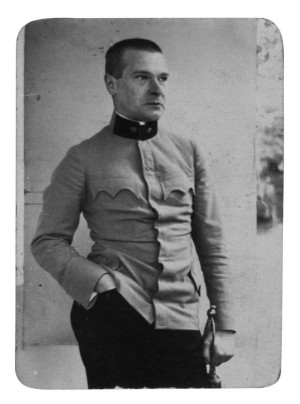
Sonja
Abend kehrt in alten Garten;
Sonjas Leben, blaue Stille.
Wilder Vögel Wanderfahrten;
Kahler Baum in Herbst und Stille.
Sonnenblume, sanftgeneigte
Über Sonjas weißes Leben.
Wunde, rote, niegezeigte
Läßt in dunklen Zimmern leben,
Wo die blauen Glocken läuten;
Sonjas Schritt und sanfte Stille.
Sterbend Tier grüßt im Entgleiten,
Kahler Baum in Herbst und Stille.
Sonne alter Tage leuchtet
Über Sonjas weiße Brauen,
Schnee, der ihre Wangen feuchtet,
Und die Wildnis ihrer Brauen.
Georg Trakl
(1887 – 1914)
Sonja
• fleursdumal.nl magazine
More in: #Experimental Poetry Archive, - Archive Tombeau de la jeunesse, Archive S-T, Archive S-T, Expressionism, Trakl, Georg, Trakl, Georg

Vorfrühling
In dieser Märznacht trat ich spät aus meinem Haus.
Die Straßen waren aufgewühlt von Lenzgeruch und grünem Saatregen.
Winde schlugen an. Durch die verstörte Häusersenkung ging ich weit hinaus
Bis zu dem unbedeckten Wall und spürte: meinem Herzen schwoll ein neuer Takt entgegen.
In jedem Lufthauch war ein junges Werden ausgespannt.
Ich lauschte, wie die starken Wirbel mir im Blute rollten.
Schon dehnte sich bereitet Acker. In den Horizonten eingebrannt
War schon die Bläue hoher Morgenstunden, die ins Weite führen sollten.
Die Schleusen knirschten. Abenteuer brach aus allen Fernen.
Ueberm Kanal, den junge Ausfahrtwinde wellten, wuchsen helle Bahnen,
In deren Licht ich trieb. Schicksal stand wartend in umwehten Sternen.
In meinem Herzen lag ein Stürmen wie von aufgerollten Fahnen.
Ernst Stadler
(1883 – 1914)
Vorfrühling
•fleursdumal.nl magazine
More in: *War Poetry Archive, - Archive Tombeau de la jeunesse, Archive S-T, Archive S-T, Stadler, Ernst
Under a Future Sky is a gathering of generations, a performance with ghosts anchored in Brynn Saito’s journey with her father to the desert prison where, over 80 years ago, her grandparents met and made a life.
 Born of a personal ache, an unquenchable desire to animate the shadow archive, Saito’s journey unfolds in lyric correspondences and epistolary poems that sing with rage, confusion, and, ultimately, love. In these works, descendants of wartime incarceration exchange dreams, mothers become water goddesses, and a modern daughter haunts future ruins. To enter this book is to enter the slipstream of nonlinear time, where mystical inclinations, yellow cedars, and sisterhood make a balm for trauma’s scars. Altogether, the work enacts a dialogue between the past and the present; the radical ancestor and the future child; and the desert prison and the family garden, where Saito’s father diligently gathers stones.
Born of a personal ache, an unquenchable desire to animate the shadow archive, Saito’s journey unfolds in lyric correspondences and epistolary poems that sing with rage, confusion, and, ultimately, love. In these works, descendants of wartime incarceration exchange dreams, mothers become water goddesses, and a modern daughter haunts future ruins. To enter this book is to enter the slipstream of nonlinear time, where mystical inclinations, yellow cedars, and sisterhood make a balm for trauma’s scars. Altogether, the work enacts a dialogue between the past and the present; the radical ancestor and the future child; and the desert prison and the family garden, where Saito’s father diligently gathers stones.
Brynn Saito is the author of Power Made Us Swoon (2016) and The Palace of Contemplating Departure (2013), winner of the Benjamin Saltman Poetry Award from Red Hen Press and a finalist for the Northern California Book Award. She has received grant support from Densho, Hedgebrook, and the Santa Fe Arts Institute. Her poems have appeared in the New York Times and American Review among other journals and anthologies. She was a finalist for the Paterson Poetry Prize and the Milt Kessler Poetry Book Award. Brynn lives in Fresno, CA, where she is an Assistant Professor at California State University, Fresno and co-director of Yonsei Memory Project.
Brynn teaches in the MFA program at California State University, Fresno. She’s co-editing with Brandon Shimoda an anthology of poetry written by descendants of the Japanese American / Nikkei incarceration, forthcoming in 2025 from Haymarket Books.
Under a Future Sky
by Brynn Saito
112 pages
August 15, 2023
ISBN-13 978-1636281070
Publisher: Red Hen Press
Hardcover
€20,99
•fleursdumal.nl magazine
More in: #Editors Choice Archiv, *War Poetry Archive, - Book News, - Bookstores, Archive S-T, Archive S-T, Racism
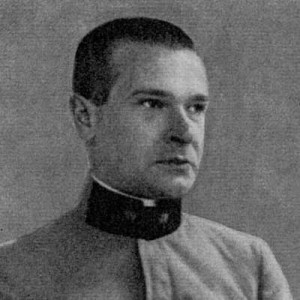
Nähe des Todes
O der Abend, der in die finsteren Dörfer
der Kindheit geht.
Der Weiher unter den Weiden
Füllt sich mit den verpesteten Seufzern
der Schwermut.
O der Wald, der leise
die braunen Augen senkt,
Da aus des Einsamen knöchernen Händen
Der Purpur seiner verzückten Tage hinsinkt.
O die Nähe des Todes. Laß uns beten.
Jn dieser Nacht lösen auf lauen Kissen
Vergilbt von Weihrauch sich der Liebenden
schmächtige Glieder.
Georg Trakl
(1887 – 1914)
Nähe des Todes
• fleursdumal.nl magazine
More in: Archive S-T, Archive S-T, Expressionisme, Trakl, Georg, Trakl, Georg
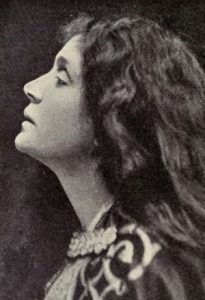
I Shall not Care
When I am dead and over me bright April
Shakes out her rain-drenched hair,
Tho’ you should lean above me broken-hearted,
I shall not care.
I shall have peace, as leafy trees are peaceful
When rain bends down the bough,
And I shall be more silent and cold-hearted
Than you are now.
Sara Teasdale
(1884-1933)
I Shall not Care
• fleursdumal.nl magazine
More in: #Editors Choice Archiv, Archive S-T, Archive S-T, Teasdale, Sara
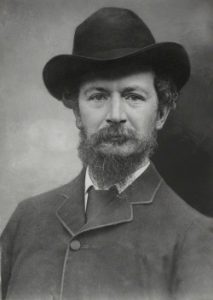
The Complaint of Lisa
(Double Sestina)
Decameron, x. 7
There is no woman living that draws breath
So sad as I, though all things sadden her.
There is not one upon life’s weariest way
Who is weary as I am weary of all but death.
Toward whom I look as looks the sunflower
All day with all his whole soul toward the sun;
While in the sun’s sight I make moan all day,
And all night on my sleepless maiden bed
Weep and call out on death, O Love, and thee,
That thou or he would take me to the dead,
And know not what thing evil I have done
That life should lay such heavy hand on me.
Alas, Love, what is this thou wouldst with me?
What honour shalt thou have to quench my breath,
Or what shall my heart broken profit thee?
O Love, O great god Love, what have I done,
That thou shouldst hunger so after my death?
My heart is harmless as my life’s first day:
Seek out some false fair woman, and plague her
Till her tears even as my tears fill her bed:
I am the least flower in thy flowery way,
But till my time be come that I be dead
Let me live out my flower-time in the sun
Though my leaves shut before the sunflower.
O Love, Love, Love, the kingly sunflower!
Shall he the sun hath looked on look on me,
That live down here in shade, out of the sun,
Here living in the sorrow and shadow of death?
Shall he that feeds his heart full of the day
Care to give mine eyes light, or my lips breath?
Because she loves him shall my lord love her
Who is as a worm in my lord’s kingly way?
I shall not see him or know him alive or dead;
But thou, I know thee, O Love, and pray to thee
That in brief while my brief life-days be done,
And the worm quickly make my marriage-bed.
For underground there is no sleepless bed:
But here since I beheld my sunflower
These eyes have slept not, seeing all night and day
His sunlike eyes, and face fronting the sun.
Wherefore if anywhere be any death,
I would fain find and fold him fast to me,
That I may sleep with the world’s eldest dead,
With her that died seven centuries since, and her
That went last night down the night-wandering way.
For this is sleep indeed, when labour is done,
Without love, without dreams, and without breath,
And without thought, O name unnamed! of thee.
Ah, but, forgetting all things, shall I thee?
Wilt thou not be as now about my bed
There underground as here before the sun?
Shall not thy vision vex me alive and dead,
Thy moving vision without form or breath?
I read long since the bitter tale of her
Who read the tale of Launcelot on a day,
And died, and had no quiet after death,
But was moved ever along a weary way,
Lost with her love in the underworld; ah me,
O my king, O my lordly sunflower,
Would God to me too such a thing were done!
But if such sweet and bitter things be done,
Then, flying from life, I shall not fly from thee.
For in that living world without a sun
Thy vision will lay hold upon me dead,
And meet and mock me, and mar my peace in death.
Yet if being wroth God had such pity on her,
Who was a sinner and foolish in her day,
That even in hell they twain should breathe one breath,
Why should he not in some wise pity me?
So if I sleep not in my soft strait bed
I may look up and see my sunflower
As he the sun, in some divine strange way.
O poor my heart, well knowest thou in what way
This sore sweet evil unto us was done.
For on a holy and a heavy day
I was arisen out of my still small bed
To see the knights tilt, and one said to me
“The king,” and seeing him, somewhat stopped my breath,
And if the girl spake more, I heard not her,
For only I saw what I shall see when dead,
A kingly flower of knights, a sunflower,
That shone against the sunlight like the sun,
And like a fire, O heart, consuming thee,
The fire of love that lights the pyre of death.
Howbeit I shall not die an evil death
Who have loved in such a sad and sinless way,
That this my love, lord, was no shame to thee.
So when mine eyes are shut against the sun,
O my soul’s sun, O the world’s sunflower,
Thou nor no man will quite despise me dead.
And dying I pray with all my low last breath
That thy whole life may be as was that day,
That feast-day that made trothplight death and me,
Giving the world light of thy great deeds done;
And that fair face brightening thy bridal bed,
That God be good as God hath been to her.
That all things goodly and glad remain with her,
All things that make glad life and goodly death;
That as a bee sucks from a sunflower
Honey, when summer draws delighted breath,
Her soul may drink of thy soul in like way,
And love make life a fruitful marriage-bed
Where day may bring forth fruits of joy to day
And night to night till days and nights be dead.
And as she gives light of her love to thee,
Give thou to her the old glory of days long done;
And either give some heat of light to me,
To warm me where I sleep without the sun.
O sunflower made drunken with the sun,
O knight whose lady’s heart draws thine to her,
Great king, glad lover, I have a word to thee.
There is a weed lives out of the sun’s way,
Hid from the heat deep in the meadow’s bed,
That swoons and whitens at the wind’s least breath,
A flower star-shaped, that all a summer day
Will gaze her soul out on the sunflower
For very love till twilight finds her dead.
But the great sunflower heeds not her poor death,
Knows not when all her loving life is done;
And so much knows my lord the king of me.
Aye, all day long he has no eye for me;
With golden eye following the golden sun
From rose-coloured to purple-pillowed bed,
From birthplace to the flame-lit place of death,
From eastern end to western of his way.
So mine eye follows thee, my sunflower,
So the white star-flower turns and yearns to thee,
The sick weak weed, not well alive or dead,
Trod underfoot if any pass by her,
Pale, without colour of summer or summer breath
In the shrunk shuddering petals, that have done
No work but love, and die before the day.
But thou, to-day, to-morrow, and every day,
Be glad and great, O love whose love slays me.
Thy fervent flower made fruitful from the sun
Shall drop its golden seed in the world’s way,
That all men thereof nourished shall praise thee
For grain and flower and fruit of works well done;
Till thy shed seed, O shining sunflower,
Bring forth such growth of the world’s garden-bed
As like the sun shall outlive age and death.
And yet I would thine heart had heed of her
Who loves thee alive; but not till she be dead.
Come, Love, then, quickly, and take her utmost breath.
Song, speak for me who am dumb as are the dead;
From my sad bed of tears I send forth thee,
To fly all day from sun’s birth to sun’s death
Down the sun’s way after the flying sun,
For love of her that gave thee wings and breath,
Ere day be done, to seek the sunflower.
Algernon Charles Swinburne
(1837-1909)
The Complaint of Lisa
(Double Sestina)
Decameron, x. 7
• fleursdumal.nl magazine
More in: # Classic Poetry Archive, Archive S-T, Archive S-T, CLASSIC POETRY, Swinburne, Algernon Charles
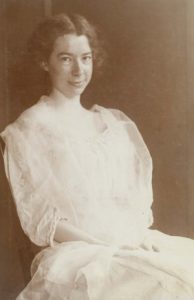
Spring Rain
I thought I had forgotten,
But it all came back again
To-night with the first spring thunder
In a rush of rain.
I remembered a darkened doorway
Where we stood while the storm swept by,
Thunder gripping the earth
And lightning scrawled on the sky.
The passing motor busses swayed,
For the street was a river of rain,
Lashed into little golden waves
In the lamp light’s stain.
With the wild spring rain and thunder
My heart was wild and gay;
Your eyes said more to me that night
Than your lips would ever say….
I thought I had forgotten,
But it all came back again
To-night with the first spring thunder
In a rush of rain.
Sara Teasdale
(1884-1933)
Spring Rain
• fleursdumal.nl magazine
More in: 4SEASONS#Spring, Archive Q-R, Archive S-T, Archive S-T, Teasdale, Sara
Thank you for reading Fleurs du Mal - magazine for art & literature